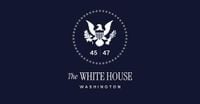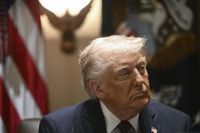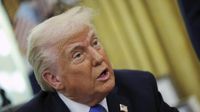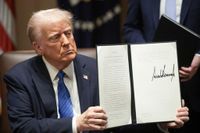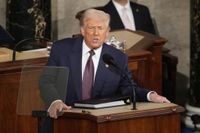Former President Donald Trump signed a memorandum on March 25, 2025, ordering the immediate declassification of FBI files connected to the investigation of his 2016 campaign’s potential ties to Russia. This directive aims to shed light on the controversial Crossfire Hurricane investigation, which had often been labeled as politically motivated by Trump and his allies.
This step represents a significant escalation in Trump's ongoing efforts to expose what he considers a "deep state" conspiracy that allegedly sought to undermine his presidency. Addressing the press after signing the order, Trump characterized the Crossfire Hurricane probe as a "total weaponization" of governmental power against him, suggesting that the American public deserves full transparency regarding the materials related to the investigation.
The Crossfire Hurricane inquiry began on July 31, 2016, to determine whether members of Trump's campaign were colluding with Russian officials to influence the election. Although the investigation did not result in any evidence of conspiracy, deep divisions remain over the implications of the probe and its origins.
White House staff secretary Will Scharf elaborated on the memorandum, stating that it calls for the declassification of "all files related to the Crossfire Hurricane investigation." He asserted that the time has come for the public to gain full access to these documents. Scharf emphasized, “We believe that it’s long past time for the American people to have a full and complete understanding of what exactly is in those files.”
The controversy surrounding Crossfire Hurricane reached new heights during Trump’s first term, with investigations revealing substantial flaws in the FBI's handling of the probe. Nonetheless, critics have pointed out that no conclusive evidence of intentional bias against Trump was ever established, and multiple investigations, including one led by Special Counsel Robert Mueller, ultimately exonerated Trump regarding any allegations of conspiracy.
Mueller's report, released in April 2019, found that while there was insufficient evidence to charge Trump or his campaign with colluding with Russia, it left open the question of whether Trump obstructed justice. This ambiguity has fueled ongoing debates within the political landscape.
In Trump’s view, the declassification of these documents is essential for re-establishing trust in the intelligence community. He insists that the Crossfire Hurricane investigation was not just flawed but a deliberate attack against his presidency instigated by those who opposed him.
The memorandum specifically states that the declassification applies to materials referenced in a previous Presidential Memorandum from January 19, 2021, which had also aimed to declassify materials related to the same investigation. The only exceptions noted are documents that must remain classified due to prior requests for redactions by the FBI and specific privacy laws. Trump noted, “You probably won’t bother because you’re not going to like what you see. But this was total weaponization; it’s a disgrace.”
This latest action extends a pattern of behavior from Trump since leaving office, as he has made various attempts to reshape narratives surrounding federal law enforcement and intelligence agencies. The former president's continued focus on exposing what he perceives as corruption highlights a central theme in his post-presidency strategy.
The FBI's Crossfire Hurricane investigation initially gained attention when it was revealed that the probe had been initiated based on questionable evidence, including the controversial Steele dossier. Funded by former Secretary of State Hillary Clinton's campaign, the dossier sparked scrutiny regarding its legitimacy and the motivations behind its production.
Furthermore, Trump's memorandum comes on the heels of the ongoing fallout from the numerous investigations that scrutinized his campaign and presidency. Many of Trump's supporters view the Crossfire Hurricane investigation as evidence of political bias pervading the FBI and other government entities.
In addition to the declassification order, Trump also signed an executive order sanctioning the law firm Jenner & Block, drawing a connection to Andrew Weissmann, a former Mueller deputy and a vociferous critic of Trump. The executive order represents a continuation of Trump's effort to address perceived injustices carried out during the investigations into his conduct in office.
As Trump pushes forward on these fronts, the true impact of his latest memorandum remains to be seen. Legal experts have noted that the implications for national security and intelligence processes may lead to resistance from officials who are concerned about the exposure of sensitive information.
The road ahead seems uncertain, particularly with the complexities surrounding the Crossfire Hurricane documents and the deep political divide over their relevance. One thing is clear: Trump's actions have reignited conversations about governmental accountability, transparency, and the relationship between political factions and law enforcement.
This unfolding story will undoubtedly keep observers engaged as the implications and potential revelations from declassified documents may reshape public discourse on the Russia investigation for years to come.
